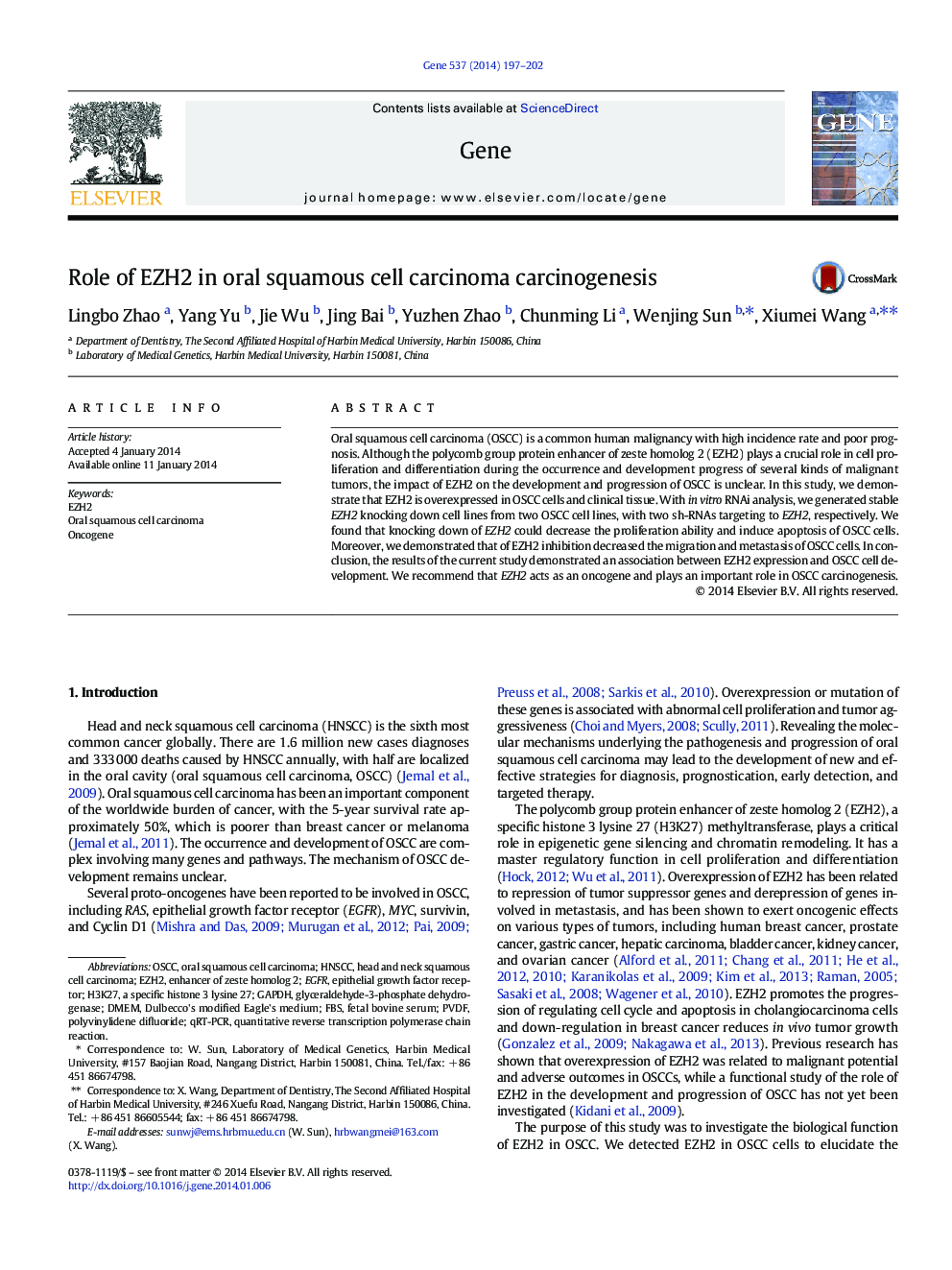| Article ID | Journal | Published Year | Pages | File Type |
|---|---|---|---|---|
| 2816672 | Gene | 2014 | 6 Pages |
•EZH2 acts as an oncogene and is overexpressed in OSCC cells.•Suppression of EZH2 reduces cell proliferation and promotes apoptosis in OSCC cells.•Lower expression of EZH2 decreases migration and metastasis ability of OSCC cells.
Oral squamous cell carcinoma (OSCC) is a common human malignancy with high incidence rate and poor prognosis. Although the polycomb group protein enhancer of zeste homolog 2 (EZH2) plays a crucial role in cell proliferation and differentiation during the occurrence and development progress of several kinds of malignant tumors, the impact of EZH2 on the development and progression of OSCC is unclear. In this study, we demonstrate that EZH2 is overexpressed in OSCC cells and clinical tissue. With in vitro RNAi analysis, we generated stable EZH2 knocking down cell lines from two OSCC cell lines, with two sh-RNAs targeting to EZH2, respectively. We found that knocking down of EZH2 could decrease the proliferation ability and induce apoptosis of OSCC cells. Moreover, we demonstrated that of EZH2 inhibition decreased the migration and metastasis of OSCC cells. In conclusion, the results of the current study demonstrated an association between EZH2 expression and OSCC cell development. We recommend that EZH2 acts as an oncogene and plays an important role in OSCC carcinogenesis.
